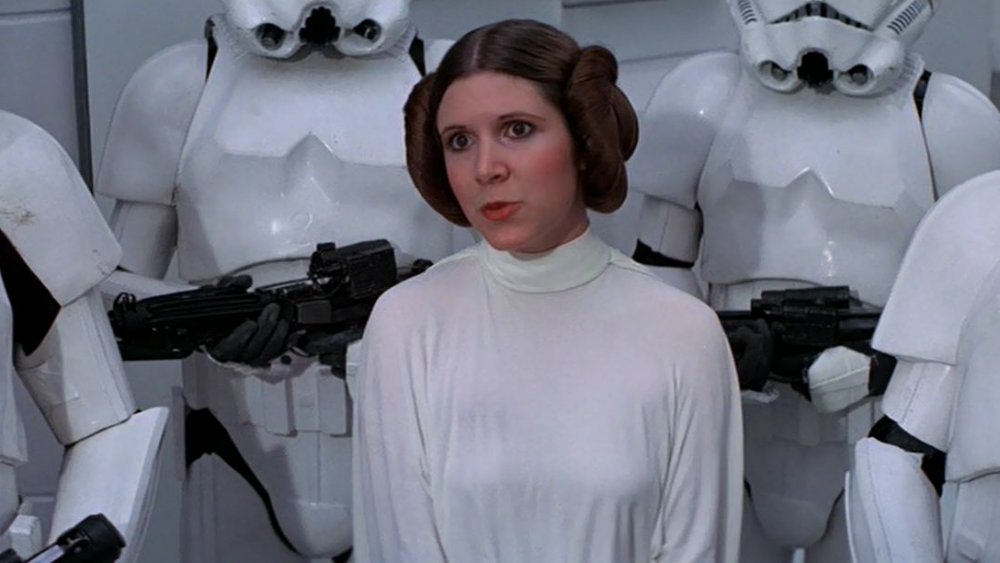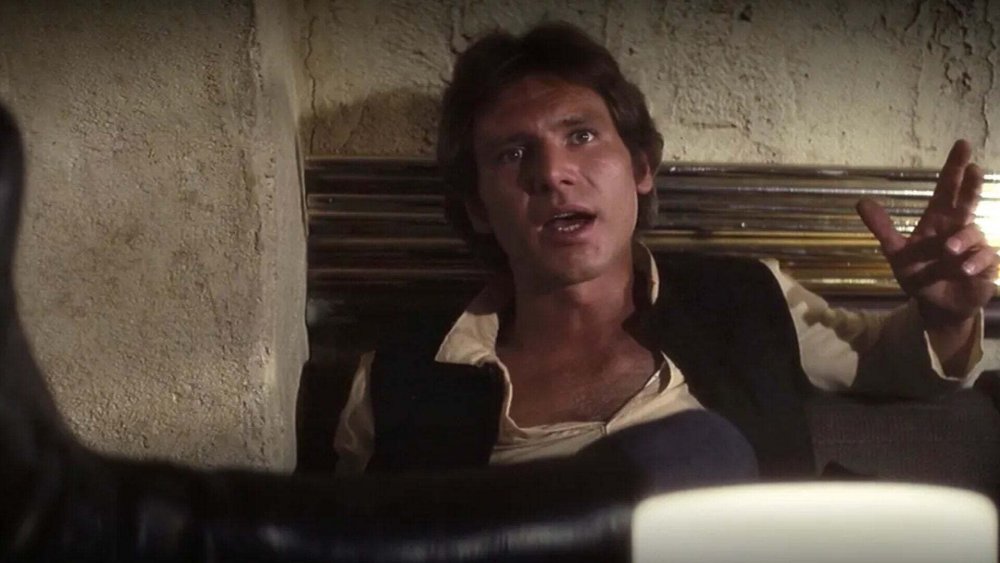Why Watching The Best Version Of Star Wars Is Actually Illegal
Before the Star Wars sequel trilogy split fans in every direction imaginable, and even before midi-chlorians for that matter, there was one universal truth amongst grumpy Star Wars fans: The Special Editions are inferior to the original cut of George Lucas' Star Wars film trilogy. Unfortunately, Lucas has proven decidedly stubborn about not re-releasing the theatrical versions of the films, leaving it up to enterprising enthusiasts to do something about it. While a fan-made "Despecialized" Star Wars does exist, it's not exactly legal to watch.
That's right, Zack Snyder fans didn't invent demanding a particular edit of a film be released. Unfortunately, the only HD versions of the original Star Wars trilogy that are available to buy on Blu-ray or stream on Disney+ are the ones with which George Lucas tinkered: first with the rerelease in 1997, then adding more changes in the 2004 DVD release ... and again in 2011 ... up until 2019's infamous "maclunkey" incident. A low-quality LaserDisc transfer of the original trilogy was released on DVD in 2006, and that's it.
That was it — until Petr Harmáček (known as Harmy) and a group of other Star Wars fans took over a decade to compile HD versions of the original, pre-Special Edition Star Wars trilogy, creating a fan community along the way as well. They aren't for sale, but downloading and watching the Despecialized Edition is still technically a crime. While torrenting — a popular peer-to-peer file-sharing protocol that allows many users to access and download files – isn't innately illegal because non-copyrighted material can be shared and downloaded without issue, sharing and/or downloading copyrighted material such as movies, books, video games, music, and TV shows is against the law (via Pixel Privacy).
Copyright laws keep tightening
In order for fan edits or "derivative works" of any kind to be legal without purchasing the copyright, the original work has to lose its copyright protection and fall into the public domain. That's how we end up with so many versions of stories like The Wizard of Oz and Frankenstein. Copyright law in the United States has changed several times over the decades, and there are varying laws about when works created after a certain time will become public domain. While the original Mickey Mouse cartoon, Steamboat Willie, will enter the public domain in 2024, with later versions still being protected under copyright, Disney did benefit from the Sonny Bono Copyright Term Extension Act of 1998 (sometimes colloquially known as the Mickey Mouse Protection Act). Steamboat Willie would have entered the public domain in 2003 if not for the extension. Who's to say that Congress won't again keep Disney properties — like Mickey Mouse cartoons or even the Star Wars films — out of the public domain for a few more decades past their original copyright expirations?
There are plenty of reasons to grumble about the Special Editions. There are different songs, different actors, a different morality-defining moment for Han Solo. Chief among the things to miss, however, are the original, ground-breaking, Academy Award-winning visual effects that made Star Wars capture the imaginations of audiences back in the '70s and '80s. The original cuts are a piece of film history that have been "lost" on purpose thanks to Lucas himself. This may be what the auteur wanted, but it's not just his work up there on the screen. The work put in by the original editors and digital effects artists has been erased by the newer versions.
For now, apologies to your Skywalker Saga marathon, but the Despecialized Edition of Star Wars is illegal. The "Ultimate Introductory Guide to Harmy's Star Wars Trilogy Despecialized Editions" claims that if you can prove you own copies of the source material, you're all set legally, but take that with a grain of salt if you want to be safe and keep hoping that one day an official restoration of A New Hope, The Empire Strikes Back, and Return of the Jedi will get that sweet Blu-ray treatment.

